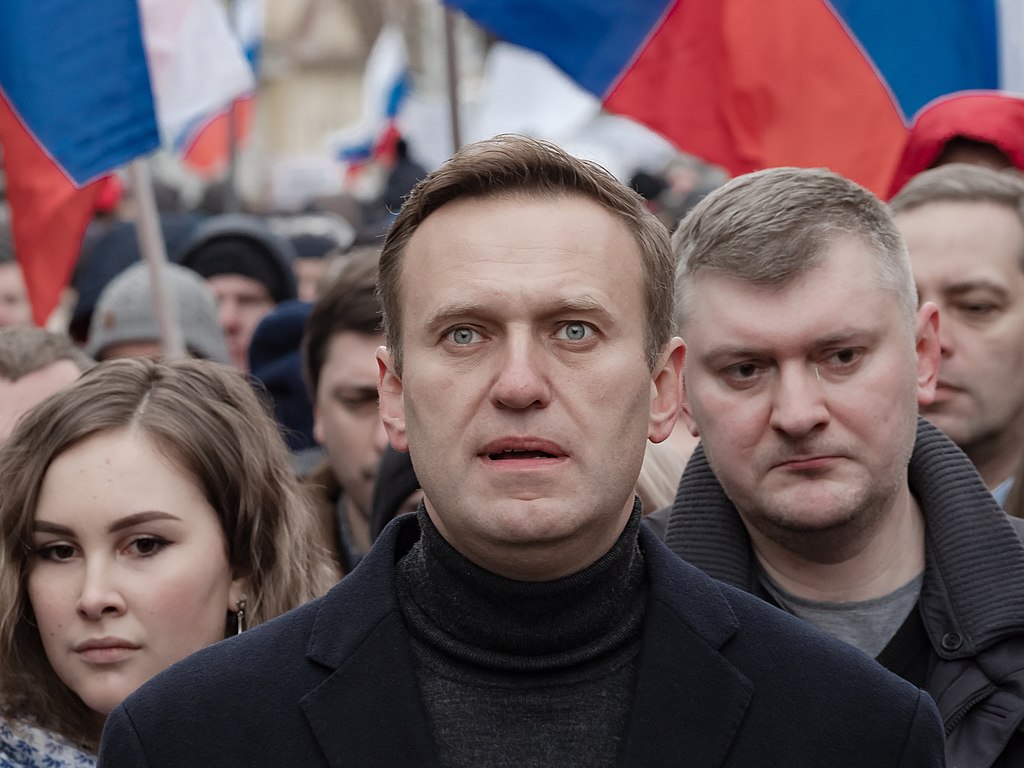Alexei Navalny is mourned as Russia’s most daring, subtle and Western-looking politician. But Navalny’s political battle in opposition to tyranny, which led to a penal colony within the Arctic and what seems to be a state-sponsored assassination, makes his “life and future” very Russian – a part of a practice of ethical resistance in opposition to the merciless and deceitful autocracy.
A doomed opponent
Navalny would have been a profitable politician in a democratic nation. However he was a political opponent in Putin’s Russia, which has advanced from a corrupt authoritarian state to a prison, ruthless dictatorship. In as we speak’s Russia you can’t pursue a political profession: you’ll be able to both be the loyal servant of the Kremlin or a part of the ever-silent individuals (odd individuals). Any signal of disloyalty or opposition is suppressed. Navalny was extra conscious of this than anybody: in 2020 he was poisoned with a nerve agent by the brokers of Putin’s secret police. But after receiving life-saving therapy from Germany, he returned to Moscow realizing he can be instantly arrested and thrown behind bars.
What may clarify this seemingly irrational transfer? Navalny’s return to Moscow – that fateful day – marked the true starting of his profession Russian story. The historical past of the Russian intelligentsia, Russian literature, traditions of political dissent and truth-telling, and the quasi-religious quest for a virtuous life are parts of the plot.
Russian author Dmitry Glukhovsky notes that Navalny, the true flesh-and-blood man, warts and all – filled with every kind of contradictions given his flirtation with Russian ethnic nationalism – had become an “impeccable hero, a part of a non secular fable.” His actions, braveness and ethical selections, Glukhovsky provides, are seen as symbols of “the lifetime of a saint; the dying of a martyr’.
Agency ethical requirements
The Russian intelligentsia, which emerged as a social group within the 1830s, pursued ethical perfectionism. Their robust aspirations arose from two confluent mental traditions: one spiritual, arising from Jap (Byzantine) Christianity; the opposite is a secular legacy of Enlightenment moralism. The understanding of sovest’ (conscience) was on the core of the ethos of the early Russian intelligentsia. Having a “pure conscience” – dwelling fearlessly based on the dictates of fact – was a deeply held social superb of the intelligentsia.
Traditionally, the Russian intelligentsia emerged from confrontation with the Tsarist autocracy. Opposition to the bureaucratic establishment formed the intelligentsia’s guidelines of conduct and beliefs about what was proper or improper. Because the Russian cultural historian Boris Uspensky writes: ‘It’s exactly the dichotomy between the intelligentsia and the Tsar that lies on the origin of the Russian intelligentsia.’ A Russian clever is at all times in opposition, with their ethical values contrasting with the workings of a repressive state system.
With the collapse of the Soviet Union, the intelligentsia could have left the historic stage. Nonetheless, their ethical ideas didn’t disappear: many Russians internalized the beliefs of the intelligentsia by studying classical Russian literature, which in flip had been the product of the artistic efforts of the Russian intelligentsia. Like medieval Previous Russian literature, which is completely spiritual in nature, the nice Russian novel of the nineteenth and early twentieth centuries fulfills a didactic operate: it expounds on a lifetime of dignity, the unending battle between good and evil, and the selection between good and evil. Fact and untruth. In lots of memoirs and interviews, outstanding members of the Soviet dissident motion affirm that the subversive, “quasi-religious” essence of Russian literature had formed their ethical ideas and unfavourable attitudes towards the “immoral” Soviet system.
The reign of the martyr
Born in 1976, Alexei Navalny belonged to a brand new Russian technology: he was a youngster when communism fell and the Soviet Union collapsed. But the components that formed his ethical imaginative and prescient seem like the identical as these at work in current many years. Russian literature appeared to have performed an necessary position. In a letter he despatched to Russian opposition journalist Sergei Parkhomenko not lengthy earlier than his dying, Navalny mentioned some Russian classics. He centered on Chekhov’s tales and in contrast the darkish realism of some performs to the oeuvre of Dostoyevsky. The letter ended with a telling exhortation: “You could learn the classics. We do not know them effectively sufficient.’ Additionally it is troublesome to keep away from the direct parallel between Navalny’s passionate need for fact and the Russian literary and dissident custom of truth-telling, finest epitomized by Alexander Solzhenitsyn’s 1974 essay. Do not reside by lies; all of Navalny’s livestreams invariably ended with the sentence: “Subscribe to our channel: right here we inform the reality.”
Alexei Navalny’s ethical rectitude, private braveness and fearless dedication to stay to his ideas it doesn’t matter what positioned him on par with a protracted line of Russian victims of political repression who’ve defied Russia’s Leviathan over the previous two centuries. The fragmented Russian opposition now has a robust hero fable and image to rally behind. Putin (or “bunker dad,” as Navalny derisively known as him) feared his most outstanding political opponent when he was alive. Now that Navalny is useless, Putin is arguably in a worse state of affairs. The Kremlin tyrant must be reminded of Søren Kierkegaard’s well-known assertion: ‘the tyrant dies and his rule is over; the martyr dies and his reign begins.”

